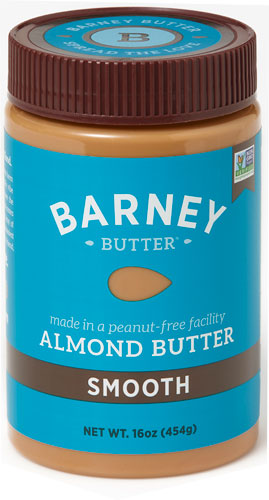Breakfast is the most important meal of the day. But the wrong choices can get the morning off to a bad start, and put your health at risk.
Many traditional breakfast foods – including some of the most appealing – offer little nutrition and actually can contribute to diabetes, heart disease and other health issues.
Following are five popular foods that make for a lousy breakfast.
Processed meats such as sausages, bacon and salami
These breakfast staples have several strikes against them, according to Kim Larson, a Seattle-based registered dietitian nutritionist and spokesperson for the Academy of Nutrition and Dietetics.
"Highly processed foods have only half the amount of protein as other protein foods, and contribute lots of salt to our diet," she says.
They also are high in saturated fat, which raises levels of LDL cholesterol – the so-called "bad" cholesterol – and puts you at greater risk of heart disease.
"Eating these foods regularly has been found to be linked to an 18 percent increased risk of colon cancer," Larson says.
Bagels
Bagels sure look healthy, but appearances can be deceiving. Aside from 100 percent whole-grain options, bagels typically are "300-500 calories worth of starch," according to the Cleveland Clinic.
Add in cream cheese or butter, and you have an unhealthy breakfast food that increases your risk of heart disease, and that the Cleveland Clinic describes as "an invitation for diabetes."
Doughnuts
You might love having a glazed doughnut in the morning, but your body does not, says Judy Caplan, a Vienna, Virginia-based registered dietitian nutritionist and founder of the GoBeFull program and website.
"Doughnuts are usually made from white bleached flour, which is devoid of fiber and then exposed to powerful bleaching agents," she says.
They also are full of refined sugar and inflammatory fats. The refined sugar in the doughnut -- coupled with the natural sugars in the flour and the lack of fiber -- break down quickly, causing an insulin response, Caplan says.
Refined oils used to fry doughnuts are repeatedly exposed to high temperatures that denature the oils and change the chemical bonds, Caplan says. "These oils can be inflammatory and dangerous to arteries, especially if they are hydrogenated or trans fats," she says.
A typical glazed donut has about 255 calories, which is not a lot, according to Caplan. "But those calories have few nutrients and no fiber, which make them empty calories," she says.
Breakfast cereals
That bowl of Frosted Flakes or Froot Loops might bring back warm childhood memories. But the cold, hard truth is that such cereals contain far more sugar than is good for you.
About 92 percent of cold cereals in the U.S. are preloaded with added sugars, according to a 2014 study by the Environmental Working Group.
Breakfast cereals can still be a healthful choice if you select your cereal wisely, according to the Mayo Clinic. It suggests looking for cereals that:
- Have at least 3 grams of fiber a serving, and preferably 5 or more
- Have less than 160 calories a serving if you are on a diet
- Do not list sugar among the first few ingredients
Pancakes and waffles with syrup
These tasty breakfast treats don't offer much nutrition. In fact, they essentially are "refined carbohydrates with more liquid sugar dumped on top," Larson says.
Such refined carbohydrates are the biggest contributors to added sugars in the American diet, Larson says. They provide a quick energy boost, but then drop your blood sugar even lower than before you ate them.
"They give us energy for just a short time and are nutritionally empty of nutrients for good health," Larson says. "After eating them, 30 to 60 minutes later we are hungry and need to eat again."
What you should eat instead
Larson says that to boost your metabolic rate and give your brain and muscles the energy and nutrition they need to start the day, breakfast foods should include:
- Healthy fats
- Lean protein sources such as eggs, low- fat dairy, soy milk, nuts or nut butters
- Whole-grain cereals, breads and potatoes
"Protein foods and whole-grain fibers give us long-lasting energy that can fuel us throughout the day," Larson says.
Caplan also suggests that you don't have to give up your favorite breakfast foods. Instead, you can modify them so they are more healthful.
For example, instead of buying doughnuts, make your own muffins that are naturally sweet and contain fiber and nutrients.
"Almond butter pumpkin muffins are one of my favs," she says. "There are many gluten-free options, too, using almond flour, coconut flour, bran, dates."




